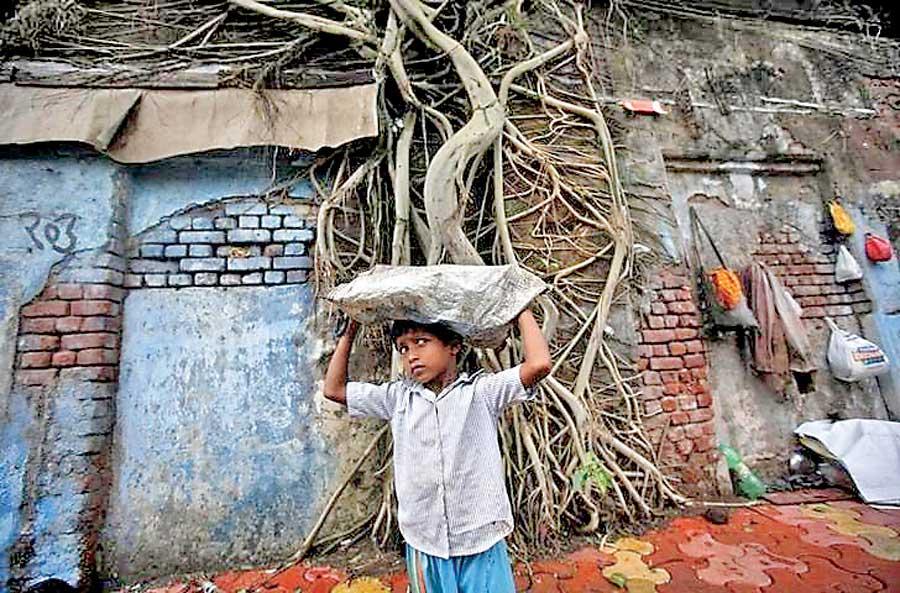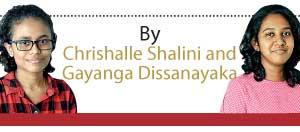Reply To:
Name - Reply Comment

The rights of a child are universal, as is any other human being defined by the universal declaration of human rights of 1948 as “all human beings are born free and equal”
The definition of ‘the child’ is vitally important for providing the necessary protection to children and for safeguarding the rights specific to children. For the purpose of the administration of justice the Children and Young Persons Ordinance (1939) of Sri Lanka used to define a ‘child’ as a person under the age of 14 and ‘a young person’ as a person between 14 and 16 years. However, this was flawed since in more than half the countries around the world, the legal age of a child is 18 years.
safeguarding the rights specific to children. For the purpose of the administration of justice the Children and Young Persons Ordinance (1939) of Sri Lanka used to define a ‘child’ as a person under the age of 14 and ‘a young person’ as a person between 14 and 16 years. However, this was flawed since in more than half the countries around the world, the legal age of a child is 18 years.
Until last month (September), Sri Lanka didn’t have a uniform definition for children. On September 28, 2022, an Amendment has been proposed by a commitee in Parliament to the Children and Young Persons Ordinance to consider the age of a person who shall be a child will be raised from 16 to 18 years. The proposal has been made at the Select Committee of Parliament to look into and report to Parliament its recommendations to ensure gender equity and equality under Committee Chairperson Sudarshini Fernandopulle.
The long-awaited amendment
Accordingly, the amendments propose to omit the reference to ‘young persons’ and rename the principal enactment as the Children’s Ordinance.
“Every reference to ‘Children and Young Persons Ordinance’, ‘children and young persons’, ‘child or young person’ and ‘age of sixteen years’ in any regulation or rule made under the principal enactment or notice, notification, contract, communication or other document issued under the principal enactment shall be read and construed as a reference respectively, to ‘Children’s Ordinance’, ‘children’, ‘child’ and ‘age of eighteen years’.
Section 71 of the principal enactment is hereby amended, by the repeal of subsection (6) of that section establishing that “nothing in this section shall be construed to affect the right of any parent, teacher or legal guardian to punish a child or youth”.
The purpose of the Children and Young Persons Ordinance Clause 23 is to make orders for the establishment of Juvenile Courts for the supervision of juvenile offenders for the protection of children and young persons.
According to the Children and Young Persons (Amendment) Bill issued on 18.07.2022, Clause 23 is amended, and the amendments will come into effect on a fixed date published in the Gazette by the Minister of Courts, Prisons and Constitutional Reforms.
UNICEF: “All children in contact with the law have the right to access age-appropriate justice services”
The United Nations Convention on the Rights of the Child (UNCRC) defines a ‘child’ as a person below the age of 18. On some issues, countries are obliged to provide for minimum ages, such as the age for admission into employment and completion of compulsory education. Age of sexual consent, age of marriage and age of criminal responsibility are also issues on which states provide for minimum ages. The Convention is unequivocal in prohibiting life imprisonment without possibility of release or capital punishment for those under 18 years of age.
When asked about the decision taken to legalise the definition of a ‘child’ to individuals under the age of 18, UNICEF mentioned that they welcome these recent amendments to the Children and Young Persons Ordinance in Sri Lanka, which will mean that all children i.e. persons under 18, will soon be treated as children under the law. UNICEF believes that all children in contact with the law have the right to access age-appropriate justice services. Children should not be incarcerated with adults and should only be given custodial sentences as a last resort and for the shortest possible time”
Dr. Tushara Wikckramanayaka: “A well-defined clear law is the protection arm of a citizen”
Dr. Tushara Wikckramanayaka, a National Health Service General Practitioner also spoke to the Daily Mirror on this discussion. “Children are the most vulnerable community in any country. One country one law cannot be in the guise of ethnicity or religion for those who are most vulnerable and require the most protection, the true beneficiaries of our country, our children,” she said.
She further went on to say that the definition of a child as agreed by 196 countries that signed the UNCRC, including Sri Lanka is 18. “In many countries, including Sri Lanka, the age of consent is 16 years. A well-defined clear law is the protection arm of a citizen. However, in SL there is one law (the Civil Law and the Criminal Law) and a variety of other lateral laws such as Kandyan Law, Thesawalama Law, Muslim Marriage and Divorce Act (MMDA), etc. Some of the sections within these lateral laws are in conflict with the Civil or Criminal Law of the country.
Therefore it is imperative that all laws conform to the Main Civil and Criminal law, which endorse the global definition of a child. Furthermore, all laws and practices must be “in the best interest” of the child, especially in preventing all forms of child abuse including corporal punishment, labour, marriage etc. without any ambiguity of the definition of a child.
However, the age limit may defer in certain criminal convictions for the purpose of sentencing such as the criminal age of conviction was recently elevated from 8 years to 12 years. The rights of a child are universal, as is any other human being defined by the universal declaration of human rights of 1948 as “all human beings are born free and equal”.
Such freedoms and equalities are guaranteed within the Constitution of the Democratic Socialist Republic of Sri Lanka. A child of any ethnicity or religion must have the freedom to pursue education, compulsory until 16 years without being offered nor coerced in marriage as practiced in Sri Lanka. Muslim girls’ rights are particularly violated because a case of any other girl who is given in marriage below the age of 16 years can be prosecuted whilst those of Muslim girls cannot as they are protected by MMDA. Such archaic and discriminatory laws must be amended to ensure all children are protected equally.”